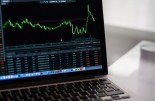Swissquote: Those who eat get fat, those who don’t regret
Swissquote: Those who eat get fat, those who don’t regret

By Ipek Ozkardeskaya, Senior Analyst at Swissquote
Major US indices came off their all-time highs yesterday. Nasdaq slipped 0.71% on the back of unideal economic data revealed in the US a day before the Federal Reserve (Fed) decision.
US retail sales fell more than expected in May, while producer prices jumped more than expected, triggering a minor loss of appetite in risk assets. Yet we haven’t seen a major kneejerk reaction to yesterday’s data as there is still a broad conviction that the Fed will turn a blind eye on the rising inflation and insist that the overshoot in inflation is transitory, should not affect the Fed’s inflation target of ‘average of 2%’ and hence should not lead to an earlier-than-expected policy and liquidity tightening.
So, the Fed is broadly expected to maintain its ultra-supportive policy unchanged at this month’s meeting and continue adding $120 billion worth of bonds to its balance sheet every month despite overshooting inflation.
The major highlight will be a hint of tapering, or the lack thereof. The taper talk itself will probably not happen today. What could happen is a talk on when to start talking about tapering. And any green light for the coming months would be perceived as a hawkish shift in Fed’s policy stance, could weigh on the risk sentiment and send major US indices lower from their record highs.
That’s why most Fed members will certainly be willing to delay the taper conversation as much as possible, as the taper talk is the last milestone before the rate normalization talk. And no one knows what would happen to stock prices when the excess liquidity is gone, given that most stock prices went through the roof since last year, with price-to-earnings and price-to-sales valuations hitting levels last seen during the 2000s dot.com crisis.
So, there is a reason to be worried about the sustainability of the actual stock rally. But on the other hand, investors also know that the Fed can’t let the stock market fall free, rising inflation or not. A bloodbath in equity markets would trigger another financial crisis. Therefore, staying long in equities is still a good option for investors looking to make some more profit in an environment of low to negative yields on less risky holdings.
As one Turkish expression says: those who eat get fat, those who don’t regret.
That’s the Turkish way of saying FOMO – the fear of missing out a further rally in case the Fed leaves the taper talk on the sidelines for another meeting. And that fear could keep the US stocks on track for a fresh record run.
But we know that an increased number of Fed officials will probably be in favour to have that taper talk sooner rather than later and that’s the major downside risk in the market at today’s announcement.
Second big event of the day is Biden-Putin meeting that takes place in Geneva. The meeting is important given the escalating tensions between the two countries recently. Elsewhere, US-China relations are also getting tenser.
Ordinarily, this type of events would have been very important for investors as deteriorating diplomatic relations would mean a slower global growth, less international trade and less profit for companies. But since the pandemic, trade war and diplomatic tensions come as second-page titles and may have little-to-no impact on the global risk sentiment.
In commodities, the oil rally is accelerating with the barrel of US crude now preparing to test the $73 per barrel. The recent push is supported by API data revealing a solid 8.5-million-barrel decline in US oil inventories last week, versus some 3.3-million-barrel fall expected by analysts. The more official EIA data is due today and could reveal a similar trend. These figures show that the rapid rise in oil demand could absorb any Iranian boost of around 4-6 million barrel per day. And with that risk being curtailed, one may think that sky is the limit for oil investors.
But rising oil means persistent inflation. Persistent inflation would mean tighter Fed policy. And tighter Fed policy would mean a softer economic recovery, softer oil demand and could translate into a downside correction in oil prices. From a technical standpoint, the overbought market conditions in US crude warns that a downside correction would only be healthy at the current levels. Yet, any downside correction will likely remain capped near $70 per barrel.









